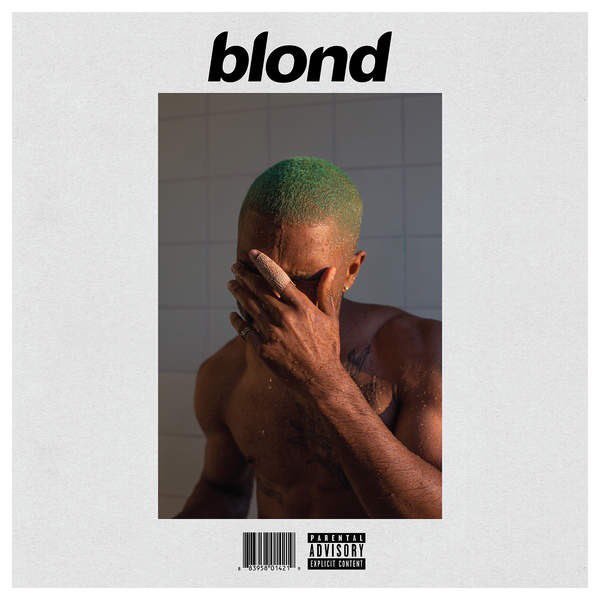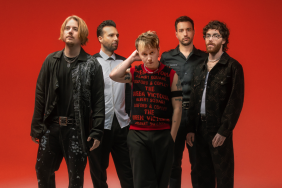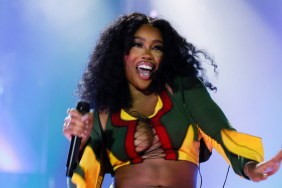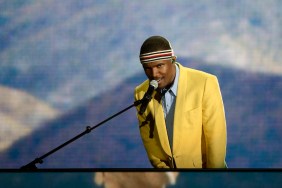If you imagined that Frank Ocean would deliver a continuation of 2012’s avant-soul masterpiece channel ORANGE, then Blonde will perplex – and possibly dismay. The reclusive perfectionist’s comeback is very divergent. Blonde is an introspective, liminal and textural work that privileges mood over melody – and minimalism over maximalism. It is missing any obvious ‘hits’ – not even Nikes, the shoegazey, self-produced lead single. Ocean rues rampant consumerism – and mourns Trayvon Martin, the Florida teen whose death prompted the #BlackLivesMatter movement.
But, while no instant classic, Blonde is brilliantly, and courageously, experimental. Ocean offers fractured songs, beatless joints, guitars, glitch and warped vocals. The album has the prerequisite ‘guests’ – Beyoncé Knowles, Kendrick Lamar, James Blake – only they’re not ‘featured artists’ but shadowy background vocalists. Blonde is the apotheosis of illwave balladry. As such, it’s an album designed for streaming.
Much has been written about the extended roll-out of the ‘event’ album formerly known as Boys Don’t Cry. Indeed, it was anticipated mid-2015. A legit release seemed imminent when in early August, Ocean’s website boysdontcry.co commenced a mysterious audio-video feed – our auteur shown constructing a spiral staircase. Here was a virtual installation commenting on the creative process – and a playful rebuff to demanding fans. Some wondered whether the subsequent delay wasn’t down to technical issues at Apple Music, Blonde’s exclusive platform – it all looked a bit #CensusFail. But who cares about that now?
Just as peepz had given up, and the tweets were becoming ever more irate, Ocean yielded Endless, an ambient “visual album”, as prelude. Musically, its most notable track is a cover of The Isley Brothers’ (At Your Best) You Are Love – which illwave’s muse Aaliyah revived in the ’90s. (Ocean shared an earlier incarnation via Tumblr in tribute to her.)
The soulster soon followed with Nikes, accompanied by a lavish video (the LP version differs). And now we have the mythic album proper in Blonde. A lucky few scored a free art mag, Boys Don’t Cry, from special pop-up stores in select US cities and London with a CD. Currently copies are going for mega-dollars on eBay. In the interim, Billboard cited an anonymous source claiming that Blonde had cost Def Jam between US$1 and $2 mill. It may yet be the last viable stealth album – the marketing game is over.
That Ocean’s third album (counting 2011’s mixtape nostalgia, ULTRA) is alternately titled Blonde and Blond, using the feminine and masculine forms, conceivably alludes to Ocean’s bisexuality. After all, dude did say he’s “got two versions”. Regardless, album info is scant, the credits unavailable. Ostensibly everyone from Ocean’s old Odd Future buddy Tyler, The Creator to Rick Rubin to Radiohead’s Jonny Greenwood participated in sessions.
Inevitably, Blonde‘s epic incubation has impacted on the arc. As with Rihanna’s ANTI and Kanye West’s The Life Of Pablo, both ultra-ambitious, it feels formless and fragmentary.
Where Blonde transcends channel ORANGE is in its indie orientation, Ocean defying the parameters of contemporary urban music. Many tracks could have been recorded by those hipster indie singer/songwriters now pursuing electro-soul – from Ry “X” Cuming (particularly with The Acid) through to Silverchair’s Daniel Johns. Ivy, overseen by Jamie xx and ex-Vampire Weekend member ROSTAM, is Beach Housey psychedelia. There are samples of The Beatles and the tragic Elliott Smith (the latter on Seigfried, which, despite its title, is abstract rather than Wagnerian).
However, the artist whose influence pervades Blonde is James Blake. Blake’s vocals are audible on the spare, Beatles-spraypainted White Ferrari (as are Justin Vernon’s), but it also sounds like his hymnal organ on Solo and choppy piano across Solo (Reprise). The Brit post-dubstepper is now involved with two of 2016’s key albums, other than his own The Colour In Anything, having previously contributed to Bey’s LEMONADE. (In turn, Ocean co-wrote Blake’s My Willing Heart.) But, though Blake has always been enthralled by sonic drama, Ocean is moving away from grandiosity – nothing on Blonde rivals Pyramids.
Lyrically, Blonde is concerned with memories over narratives – its themes maturation, love, sexual desire, fame, ambivalence, loneliness, drugs and materialism. Ocean puts the poetic into the personal. Helmed by Pharrell Williams, Pink + White is tropical soul with Beyoncé’s ad-libs. Ocean reminiscences about his formative years in New Orleans, Louisiana, figuratively rendering Hurricane Katrina’s aftermath: “In the wake of a hurricane/Dark skin of a summer shade/Nose dive in the flood lines/Tall tower of milk crates.” Nonetheless, in Good Guy, he directly refers to a date at a gay bar. Ultimately, Blonde is dreamy – almost surreal. Phantasmagoric.
The album’s flow is interrupted by unnecessary ‘skits’. Harking back to channel ORANGE‘s Not Just Money, Be Yourself is voicemail of a mom (apparently not Ocean’s) warning her offspring about drugs and drink, PSA-style. Elsewhere, in Facebook Story, French DJ/producer SebastiAn (!) randomly tells of an old GF unable to distinguish between real life and social media. It’s cute the first couple of spins.
Still, Be Yourself does foreshadow Solo, on which a rawly soulful Ocean admits to druggy indiscretions on tour – and feeling “so low”. Later, OutKast’s André 3000 crashes Solo (Reprise) – rationalising his retirement from rap (and, yes, sub-dissing Drake over his reliance on ghostwriters). Blonde’s apex is Nights – a suite of indie-hop, Drizzy-esque synthwave, progdom and quiet storm.
Sure, Blonde is imperfect – but, as perversely indulgent, wilfully intelligent art, it has cultural resonance. And who could have predicted that, as The Weeknd became more commercial, Ocean would get wonkier?
–
Frank Ocean’s ‘Blonde’ is out now and can be streamed on Apple Music.
Watch: Frank Ocean – Nikes












